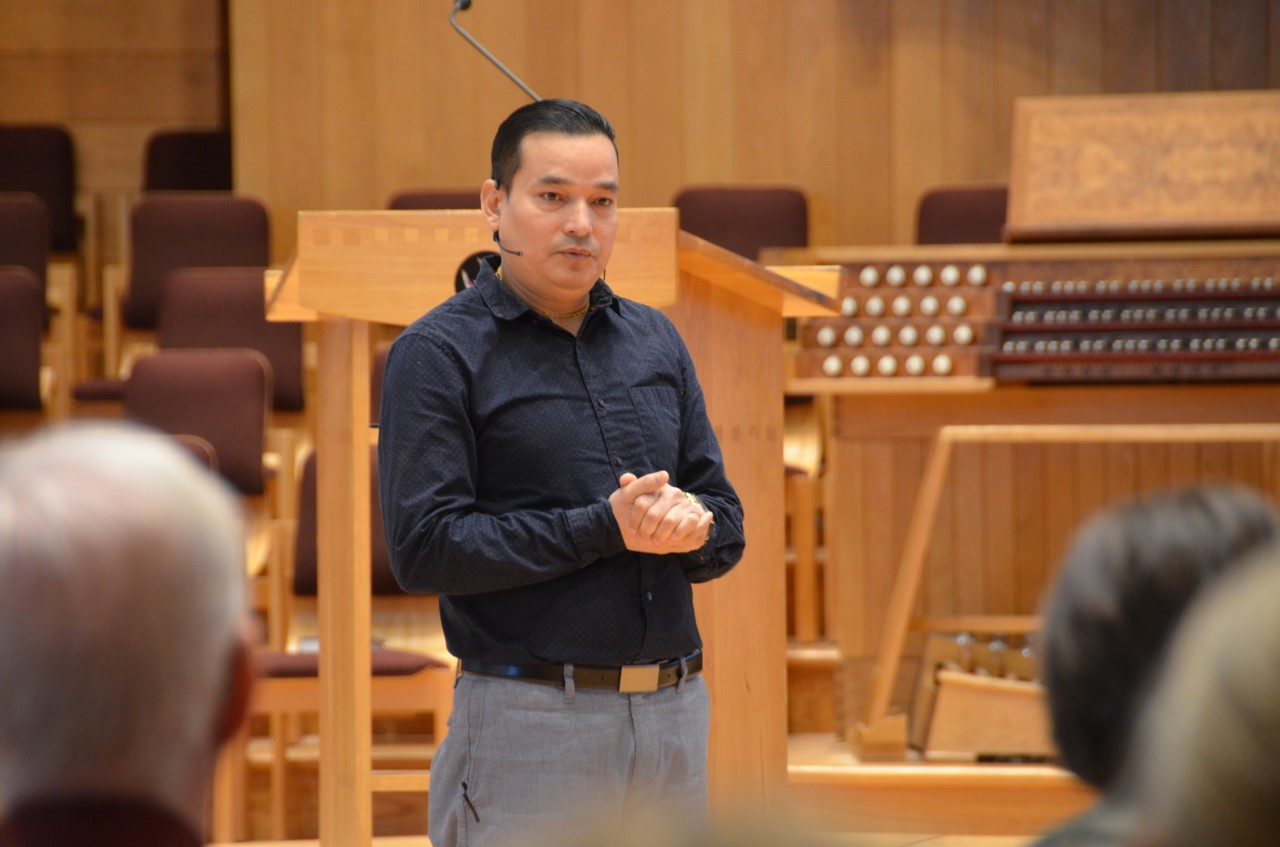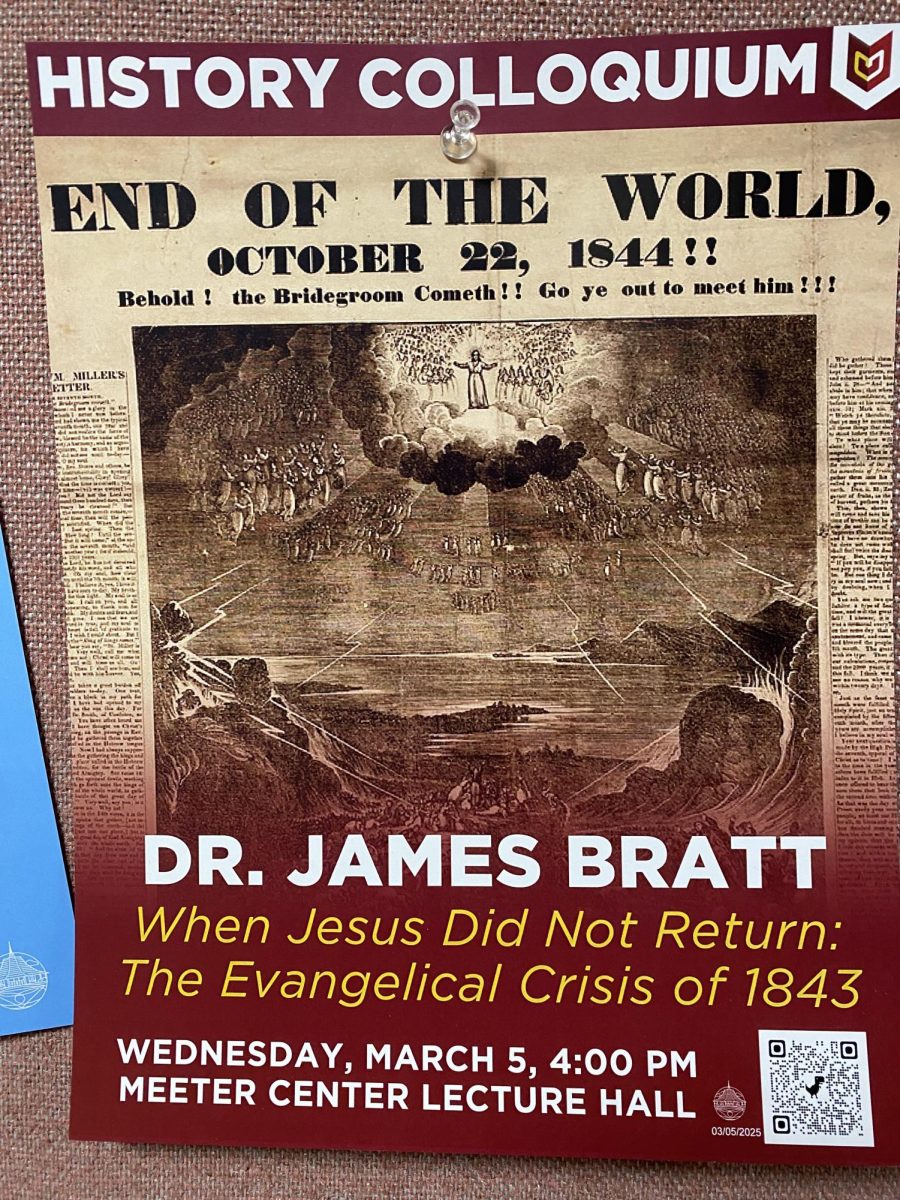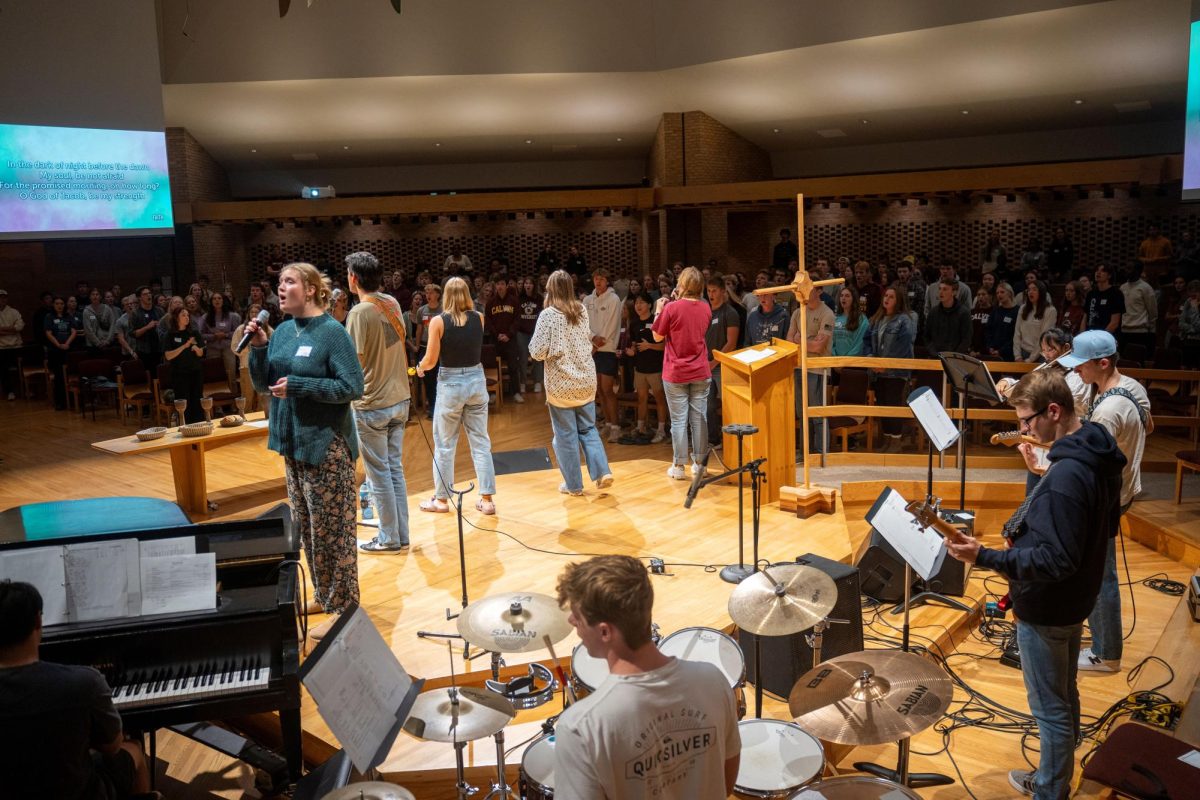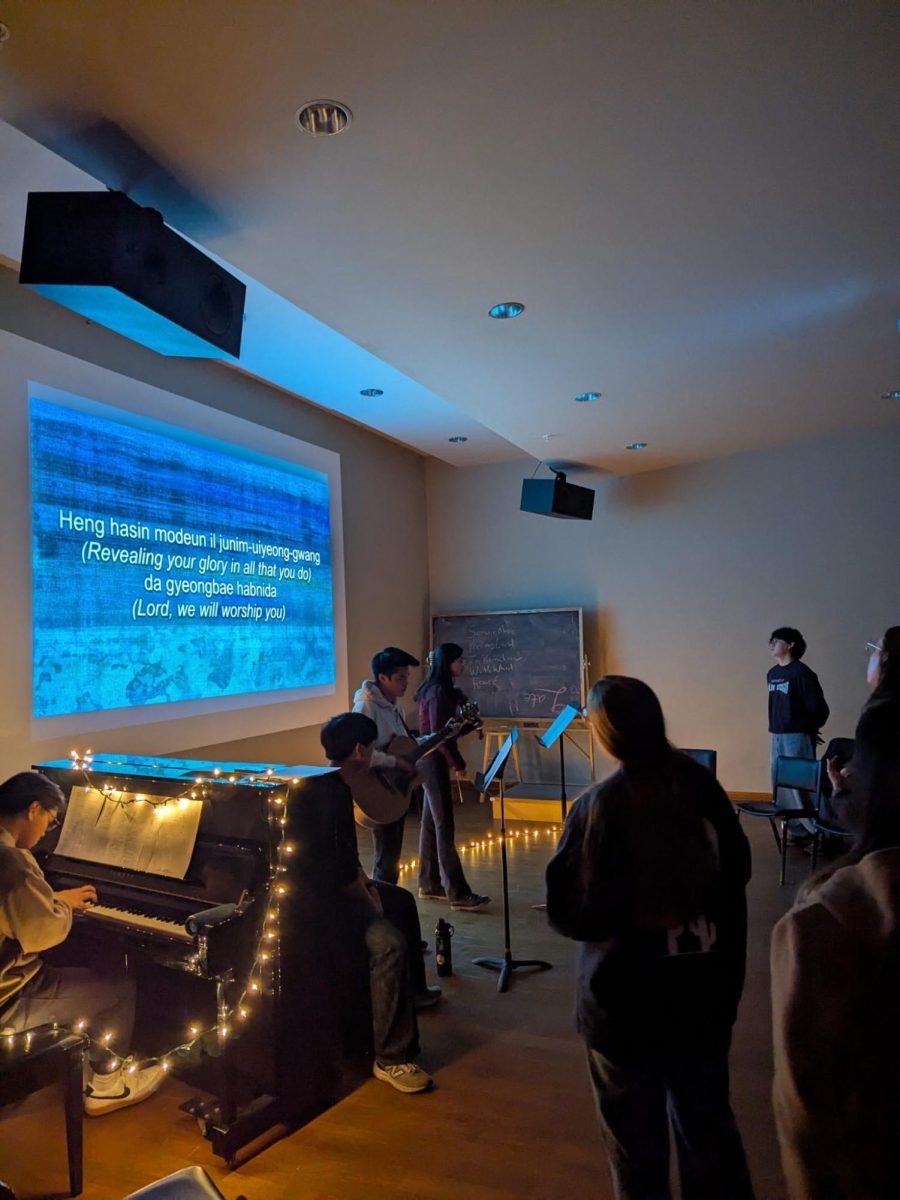An estimated 21.3 million refugees were recorded worldwide in 2016. Who are these millions of refugees in our midst? At the Noontime Series last Thursday, Bethany Christian Services representative Ana Jose suggested that these refugees are the people “who don’t have a place to call home.”
Bethany is an organization that, amongst many other services, helps find homes for displaced people. Ana Jose briefly overviewed the organization’s Christian roots and mission, then invited Dhan Kahatiwoda, the first of two former refugees, onto the stage to share his story.
Kahatiwoda is a former citizen of Bhutan who escaped to India after the military seized his home. At just sixteen years old, Kahatiwoda ran into the Bhutan woods, without his family, until he arrived in the neighboring India. After a few weeks in India, Kahatiwoda was relieved to be reunited with his family who had escaped to safety in India as well. However, a treaty between India and Bhutan made it unsafe for Bhutanese refugees to stay. Kahatiwoda and his family fled to Nepal. While they felt unwelcome in Nepal, the Kahatiwoda family started settling in because “people looked like us.”
Agencies eventually began to support the refugees in Nepal, and life got better for the Kahatiwoda family. Dhan Kahatiwoda put it this way: “We now had a minimum amount of rice, salt, sugar, to keep us going.”
Kahatiwoda and his family lived like this for seventeen years.
According to Kahatiwoda, “What keep me going was being a person who knew Jesus very regularly in my life.” Prayer kept him hopeful. However, Kahatiwoda was challenged by the secrecy of his faith. He was unable to vocalize his beliefs because of his family’s strict Hindu background and the hostile environment of the refugee camp.
In 2008, rumors circled in the refugee camp that the United States might start taking in refugees located in Nepal. Kahatiwoda was hesitant to believe these rumors because of false rumors in the past.
To his delight, Kahatiwoda arrived in Grand Rapids on his birthday, July 28, for the final interview in a long refugee acceptance process. Kahatiwoda described it as the “greatest birthday present of my life.”
Adapting to life in the United States was unexpectedly challenging. He quickly discovered his English was insufficient and began taking English courses. Bethany Christian Services helped Kahatiwoda with this transition into the American culture.
Kahatiwoda now considers himself a proud American.
Kahatiwoda was followed by Amir, a former refugee from Afghanistan. Amir has been living in the United States since March 23, 2016. Before living in the United States, he fled to Indonesia because of the dangers posed by a life in Afghanistan. He had no family to bring with him.
While in the United States, Amir has received an education and support from Bethany Christian Services.
As Amir shared his life story, he had difficulty continuing. He confessed, “My story is kind of sad, but I can’t say because it makes me more sad and uncomfortable.”
Amir recited a poem he wrote upon entering the United States. The poem was emotionally provoking as he recalled “being called a terrorist” by his American peers and simultaneously being “grateful to God” for taking him to the United States. Though he is thankful for the opportunities he has been given, the world still poses its dangers to Amir, whose last name was not shared with the audience for security purposes.
Kahatiwoda and Amir possess one commonality: they were refugees whose lives were changed forever. If it were not for organizations like Bethany, these two men, and many others, would have drastically different lives.
Ana Jose closed with a Q & A. One listener asked if the Executive Order given by the President would change how Bethany operates. Ana responded, “many youths were supposed to be here, but are not [because of the ban]. We have until the seventeenth to get youths already approved into the USA. We are working as quickly as possible.”
The next Noontime speaker will be Pamela Alderman on February 23 at noon. She will be speaking on “Healing in Art: A Pathway to Flourishing.”






